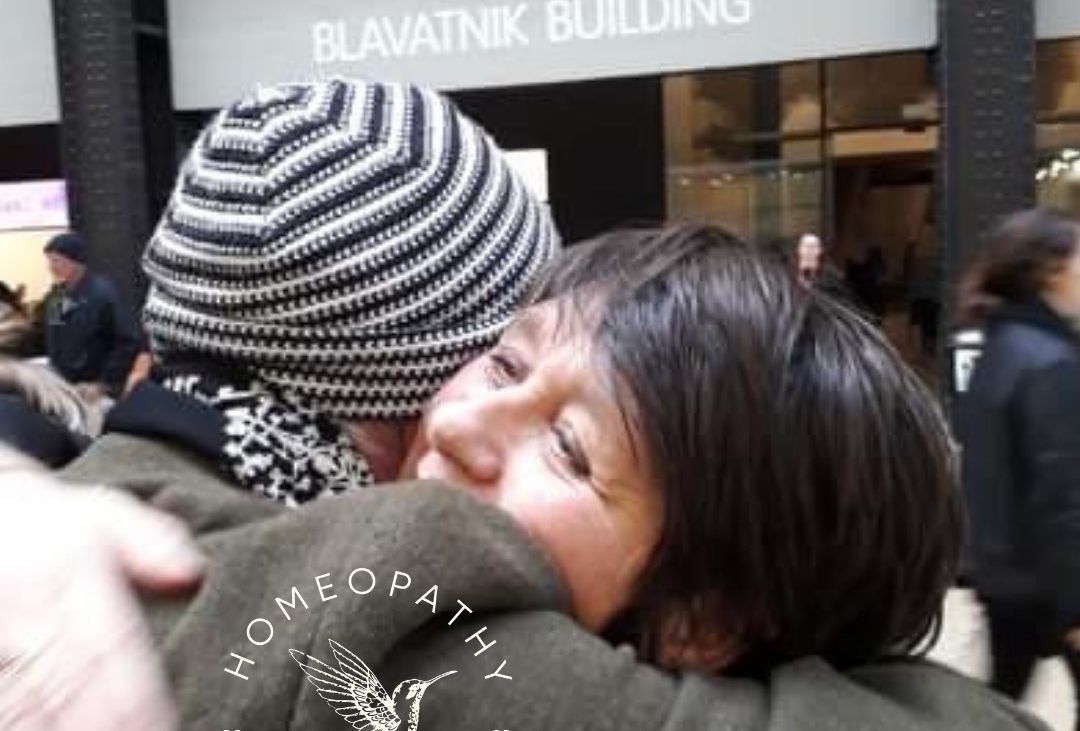Hugging is Healthy!

Now more than ever we must remember how vital it is for us to focus on our intimate relationships. By intimate I mean soul nurturing, energising, uplifting, connected relationships – the ones that leave you re-vitalised, envigorated and able to be fully You. The ones that enable you to laugh, cry, rant, share weaknessess & successes, debate & grow. Whilst the Internet has been & continues to be for some, an absolute Gift for us to conduct relationships during this period of unprecedented disonnection from others, it must not become The Norm. Yes it’s a wonderful alternative & better than nothing, and there’s one vital componant that it can never give us. That componant is Touch, physical prescence, hugging, kissing, feeling – all essential parts of us fully processing & integrating another sentient being. This processing & integation that takes place through touch & physical proximity contributes to us being fully healthy.
Being deprived of Touch has been shown to induce:-
- increased stress, depression and anxiety,
- triggers a variety of negative physiological effects by the body from releasing the hormone cortisol as a response to stress, activating the body’s primal ‘Fight, flight, freeze or appease’ response.
- Increased heart rate, blood pressure, respiration and muscle tension.
- Suppression of the digestive system and immune system = an increased risk of infection.
- Sleep issues.
- Every single disease including heart attack, diabetes, hypertension, asthma & pretty much any other pathology is altered if you are more anxious, more depressed or if you have more mental health issues.
- Long term, going an extended period without positive physical touch can even lead to post-traumatic stress disorder. Babies have been shown to go into a rapid decline when deprived of touch.
Positive touch = Positive health
Skin is the largest organ in the human body, covering us from head to toe.
A 2018 study by scientists at the Medical College of Wisconsin in Milwaukee found that skin communicates positive and negative touch stimuli to our sensory neurons.
The outermost layer of our skin, called the epidermis, is predominantly made up of billions of keratinocyte cells. The keratinocytes release a chemical called adenosine triphosphate (ATP), which activates receptors on the sensory nerve to convey the sensation of touch to the brain.
When we hug or feel a friendly touch on our skin, our brains release oxytocin, a neuropeptide involved in increasing positive, feel-good sensations of trust, emotional bonding and social connection, while decreasing fear and anxiety responses in the brain at the same time. For this reason, oxytocin is affectionately known as the “cuddle hormone.”
Our desire & need for physical contact starts at birth, as Asim Shah, M.D., professor and executive vice chair of the Menninger Department of Psychiatry at Baylor College of Medicine points out:-
“If a baby is born prematurely, the baby may be in the NICU [neonatal intensive care unit], but the mother is still asked to go to the NICU a few times a day to hold the baby and put the baby on her chest, even if they’re not breastfeeding,” Shah explained. “We know that this bonding, this human-to-human touch, is important for the growth of that child.”
Even as adults, touch helps regulate our digestion and sleep, and even boosts our immune systems.
Hugging can also help our bodies fight off infections, according to a 2014 study conducted by researchers at Carnegie Mellon University.
In the study, participants were evaluated for their level of social interaction & hugs over the course of 2 weeks. Researchers then intentionally exposed the participants to the cold virus to test their immune functions. They found that “those who receive more hugs are somewhat protected from infection and illness-related symptoms” and “physical contact with a close other [reduces] the effects of stress on biological markers thought to be precursors of disease.
Recently I met with some aquaintenances that I’ve known for a long time, who despite being fully vaccinated, are still too scared to resume their previous lives of travelling within their own country or abroad. Too scared to have people in their home or to go to other peoples homes, scared of contagion on sheets, pillows, table cloths, scared to use cutlery or cups…..the list goes on. Listening to their fear made me feel such sadness for them and also made total sense from my understanding of how our Minds work.
It really doesn’t take long for our Subconscious minds or Automatic Pilot – which actually governs & drives as much as 90% of our behavior – to set up automatic reactions to any percieved threats. It remembers & logs the feelings & the circumstances that we associate those uncomfortable or fearful feelings with. Then, without us even necessarily having any conscious thoughts, if something triggers that logged reaction the old feelings will appear automatically. Our sub-conscious mind thinks it is protecting us by warning us, reminding us that this is something to be fearful of, because it was when we originally experienced it. It thinks it’s saving us from having to think, a bit like the automatic response of pulling our hand back frtom a fire.
Once the original percieved danger or threat has passed or we have new information available within our conscious mind, we may well have a sense that this ‘knee jerk’ reaction is not really logical or serving us terribly well. But the sub-conscious mind doesn’t ‘get’ that message – it’s stubborn & very persisistent! In fact the more you try to do something that challenges that reaction, the more intense it will make it for us. It’s why often what begins as a belief that we can’t do something can end up inducing panic attacks if we persist in trying to do it. This ‘knee jerk’ reaction has become an ingrained habit & it doesn’t matter how often someone else tells us it’s not logical or sensible or evidence based, we will continue to feel the feelings & then act accordingly. Eventually we learn not to even bother trying to change or do something differently, because it’s just not worth the discomfort of feeling those feelings or experiencing panic attacks etc. The results are that we stay small, limited, unable to step outside our self limiting boxes for fear of feeling endangered again. In essence we have built our very own cage!
It actually doesn’t take long to set these sub-conscious bits of coding up particularly if they are enhancing some already existing code around similar areas. Partner that with a concerted, repeated system of messaging from all the Media outlets that you subscribe to – all reinforcing your existing feelings of fear, telling you to stay fearful, don’t trust other people, stay away, isolate yourselves etc etc, and you have the perfect mass social conditioning environment.
So what was originally a sensible response to a particular set of circumstances becomes what runs your whole life, making it smaller & smaller and most importantly taking away from your ability to be fully healthy! It becomes the very thing that we are most scared of – it keeps us living a life driven entirely by fear & unable to connect fully with those that we love, unable to experience interaction & physcial connection with other human beings. For some this fear even extends to animals, so there is no contact that is ‘safe’ from their perspective – in my view a sad & lonely way to exist.
The good news is that because we know how these sub-conscious bits of coding get set up, we can relatively easily up-grade the software, so to speak! Once someone starts to understand how unhealthy or debilitating this fear is, usually when there is a compeling enough reason to want to over-ride it, then working with a Practitioner using Methods such as QTT and/or Homeopathy can re-set the system & enable more healthy codes to be engaged. Living in fear of our fellow human beings is not a healthy way to live & it is in fact detrimental to our Health rather than protecting it. I urge you to examine whether the beliefs that drive this fear are based in irrefuteable fact, evidence based (not heresay or propaganda), to ask your self if living like this is sustainable or desireable – does it serve you or does it keep you stuck?
Let me know what answers you come up with & if you want to know more about shifting this Mind set, consider booking a free call with me to find out more.
